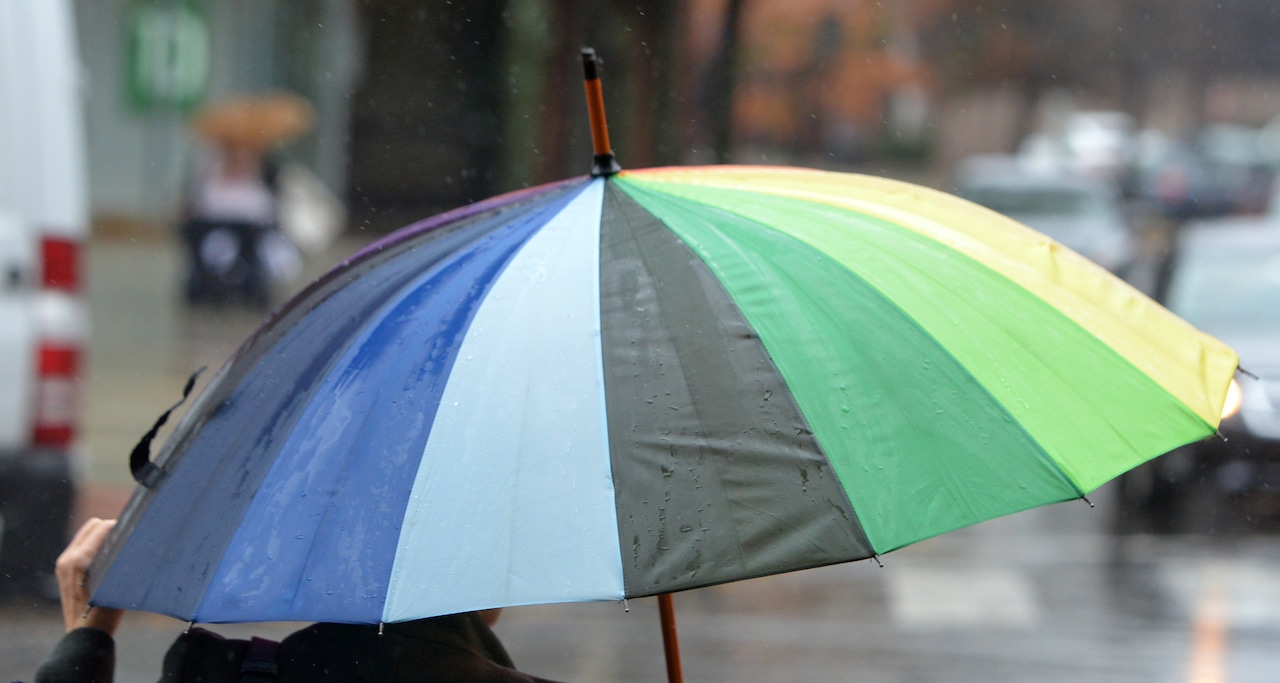Communities across New England, particularly coastal Massachusetts, are expected to be hit with a nor’easter this weekend that could bring heavy rain, high winds and a threat of flooding and power outages.
The National Weather Service is urging residents along the East Coast to prepare for conditions expected to begin Sunday afternoon and continue through Tuesday morning.
Areas across Southeastern Massachusetts, Cape Cod and the Islands are predicted to be affected the most, the service wrote.
The slow-moving system will bring a combination of hazards, including heavy rain that could total between 3 and 4 inches and high wind gusts exceeding 45 mph.
“Its duration allays concerns about flash flooding, but we will need to watch out for poor-drainage flooding, especially where storm drains may be blocked by leaves or debris,” according to the National Weather Service.
Gusts near 50 mph are possible over the Islands, with Cape Cod seeing gusts of around 45 mph. The rest of Southern New England can expect wind gusts of around 30 to 35 mph.
Between the higher seas and winds, beach erosion and minor coastal flooding are also possible, the service noted.
Nor’easters commonly occur between October and May, according to the Massachusetts Emergency Management Agency (MEMA). During winter months, nor’easters often occur as winter storms.
These weather events usually include storm surge, high winds, heavy snow, heavy rain, inland flooding, rip currents and beach erosion, and often last several days.
How to prepare for a nor’easter or coastal storm
When a weather event like this is expected to occur, MEMA suggests affected residents do the following:
Be informed by receiving alerts, warnings and public safety information before, during and after emergencies Create and review a family emergency planPeople living or working in a hurricane evacuation zone or an area prone to flooding are urged to evacuateIndividuals receiving medical treatment or home health care services are advised to work with their medical providers to maintain care if they are unable to leave their home or have to evacuate during a stormAssemble an emergency kitPrepare for possible power outages by ensuring smoke and carbon monoxide detectors are working and have fresh batteries and consider buying a generator. Individuals on life-support devices or other medical equipment should notify their utility company and speak with their medical provider to prepare for the power outagesMake a record of your personal property by taking photos or videos of your belongings and storing them in a safe placeKeep your car’s gas tank full, as gas station pumps may not work during a power outageSecure or bring in outdoor objects in your yard that could be swept away or damaged during strong winds or floodingClear clogged rain gutters to allow water to flow away from your homeCover all windows if damaging winds are expectedTurn off propane tanks if you are not using themElevate items in your basement to prepare for flooding Check your sump pump, unplug sensitive electronic equipment, clear nearby catch basins and park vehicles in areas not prone to floodingTurn off gas and electricity at the main switch or valve if instructed People who own boats should remove them from the water
Additional information on how to prepare for a nor’easter can be found here.
If you purchase a product or register for an account through a link on our site, we may receive compensation. By using this site, you consent to our User Agreement and agree that your clicks, interactions, and personal information may be collected, recorded, and/or stored by us and social media and other third-party partners in accordance with our Privacy Policy.

